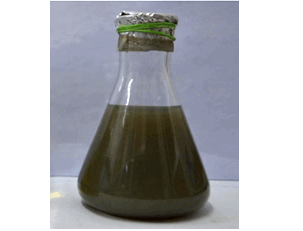ACETYLCHOLINESTERASE INHIBITION, NOOTROPIC AND ANTIOXIDANT EFFECT OF EXTRACTS FROM AGAVE SPECIES
Keywords:
Acetylcholinesterase, Agave, LPS, NeurodegenerationAbstract
Background: The systemic administration of Lipopolysaccharide (LPS) is a pharmacological model to evaluate different processes associated with neurodegeneration; it is capable of causing an increase in the oxidative state in the brain and increasing the activity of the enzyme acetylcholinesterase (ACh-E), involved in the degradation of acetylcholine (ACh). This cholinergic transmission system participates in memory processes, a crucial symptom in neurodegenerative disorders, and its modulation with scopolamine turns out to be an essential tool in the evaluation of plants. Species of the genus Agave are considered a natural resource of economic and cultural importance in Mexico. They possess compounds with anti-inflammatory, antioxidant, and anti-neuroinflammatory activities.
Methods: Extracts of A. tequilana (At-A), A. angustifolia (Aan-A), A. americana (Aam-A) at 125 mg/kg were administered to male ICR mice with LPS to evaluate the ACh-E inhibition, the concentration of the antioxidant enzyme Gluthatione Reductase (GR) and the prooxidant enzyme NADPH Oxidase (NOX). Also, the nootropic effect of these extracts on scopolamine-induced cognitive impairment was evaluated.
Results: The three Agave species studied decreased the ACh-E enzyme activity, Vmax value, and KM. These products increased the GR concentration from 0.173±0.003 (vehicle) to 0.642±0.002 µMol/mg in At-A, which was the highest one. Regarding NOX, only the A. tequilana extract decreased it (0.513±0.002µMol/mg)compared with Vehicle (0.621±0.008µMol/mg). A. tequilana and A. americana species significantly improved the retention latency parameter (260 seconds) during the passive avoidance test.
Conclusion: Agave species showed promising results in developing novel drugs for neurodegenerative disease therapy.

Peer Review History:
Received: 5 June 2023; Revised: 9 July; Accepted: 28 August; Available online: 15 September 2023
Academic Editor: Dr. Asia Selman Abdullah , Pharmacy institute, University of Basrah, Iraq, asia_abdullah65@yahoo.com
, Pharmacy institute, University of Basrah, Iraq, asia_abdullah65@yahoo.com
Reviewers:
 Dr. Sangeetha Arullappan, Universiti Tunku Abdul Rahman, Malaysia, sangeetha@utar.edu.my
Dr. Sangeetha Arullappan, Universiti Tunku Abdul Rahman, Malaysia, sangeetha@utar.edu.my
 Prof. Ali Gamal Ahmed Al-kaf, Sana'a university, Yemen, alialkaf21@gmail.com
Prof. Ali Gamal Ahmed Al-kaf, Sana'a university, Yemen, alialkaf21@gmail.com
Downloads

Published
How to Cite
Issue
Section

This work is licensed under a Creative Commons Attribution-NonCommercial 4.0 International License.









 .
.